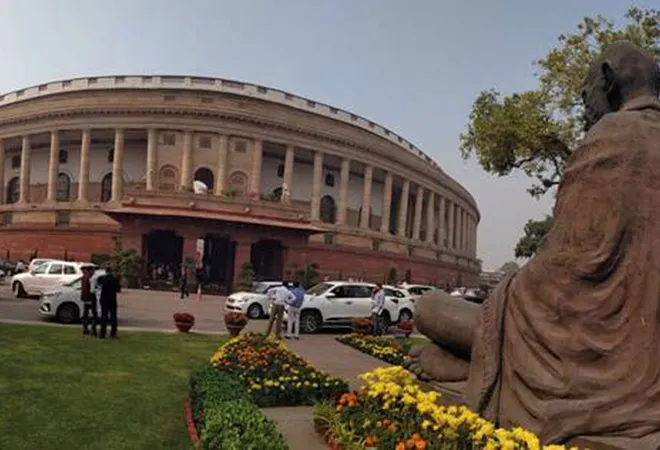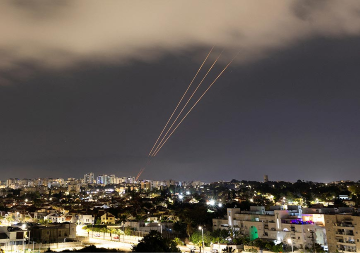
On 4 December 2019, the Union Cabinet, headed by Prime Minister Narendra Modi, approved the Citizenship Amendment Bill (CAB) 2019 clearing the passage for its introduction in Parliament which seeks to amend Citizenship Act of 1955 – the law that lays out the rules for acquiring Indian citizenship. And shortly after midnight on 10th of Dec’19, Lok Sabha or the lower house of the Indian Parliament passed Citizenship Amendment Bill. The bill got the support of 311 MP’s and was opposed by 80.
The BJP had, during Modi’s first term as prime minister, also tried to pass the legislation but had failed. Now this time, the BJP-led NDA government is confident of getting parliamentary approval for this bill that has generated a heated debate and controversy. There has been a strong opposition and protests against the CAB in many of the north-eastern states.
Undoubtedly, the CAB is a very serious move with far-reaching consequences and deeper impact on the basic character of the Constitution and therefore it needs a closer look. It seeks to give shelter and protection to persecuted minorities in Bangladesh, Pakistan and Afghanistan. If the proposed measure is passed by both the houses of parliament and is signed by the President becoming an Act then “Hindus, Sikhs, Buddhists, Jains, Parsis and Christians” shall not be treated as illegal immigrants even if they have entered the country illegally.
This ushers in a fundamental change in country’s process of citizenship by naturalisation which allows foreigners to become Indians. Under the current legal dispensation, illegal immigrants cannot apply for Indian citizenship. Current law bars Hindu migrants from Bangladesh, who have entered India without papers to become citizens. It also excludes anyone who has entered using a legal document but has overstayed visa.
At the same time, the CAB also shortens the waiting period for naturalisation for these chosen communities who would now require a six-year residence instead of the previous condition of having been a resident of India for at least 11 out of the last 14 years. Thus, once again creating two kinds of citizens that is a serious violation of fundamental rights granted to Indian citizens by the Constitution.
The stated objective of the CAB sounds logical but going through its text is stunningly shocking as it not only seriously questions its own stated objective but also negates the fundamental character of the Constitution. It also tears apart the plural fabric of Indian society. The bill, with its careful listing of protected communities, has explicitly and deliberately left out Muslims which is nothing but discriminatory. It excludes creating different categories of citizenship in which one is superior to the other where in religious faith is the sole determining criteria.
The bill erects facades, which hides the real political intentions. Justification, which is being advanced for CAB in its present form, is that Pakistan, Bangladesh and Afghanistan are Muslim-majority countries where Muslims principally cannot be discriminated and therefore can’t be persecuted too. What about Ahmadiyya community or Shias in Pakistan who have been the targets of sustained discrimination and violence?
If the main criteria for bringing the bill, as claimed in the CAB’s Statement of Objectives and Reasons, is to protect citizens of undivided rather pre-partition India than inclusion of Afghanistan is an anomaly that is striking. On the other hand, if the driving motive behind the CAB is neighbourhood then, there are host of countries around India where minorities have been subjected to terrible violence and discrimination. Rohingya Muslims in Myanmar have been facing ethnic cleansing and genocide for a longer time. Tamils in Sri Lanka have suffered systematic discrimination and state backed persecution for over three decades. The CAB’s statement of objectives and reasons have also claimed that since Afghanistan, Pakistan and Bangladesh have Islam as the official state religion they have been chosen overlooking the fact that even Sri Lanka has Buddhism as its state religion.
Dispassionately looked, it become more than obvious that the CAB has been so designed to promote and execute the RSS idea of a “Hindu Rashtra” or of a Hindu nation where Muslims are to be second grade citizens. The CAB fits well in the BJP’s political agenda that thrives on anti-Muslim plank.
It is worth recalling here that the Modi government, as early as 6 September 2015, had made changes to India’s laws to allow non-Muslims illegal migrants from Pakistan and Bangladesh to stay on in the country indefinitely. In pursuance of its anti- Muslim agenda to keep its core ‘Hinduatva’ constituency intact, the BJP had supported the National Register of Citizens (NRC) in Assam whose stated objective was to identify illegal immigrants.
The BJP is aggressively trying to put a nationwide NRC on its political agenda which is likely to result in widescale exclusion of Muslims which according to the electoral strategists would prove to be an effective mode to garner Hindu votes in coming assembly elections and in the next general elections.
The BJP is confident as the opposition is divided on opportunistic lines thus creating a state where two classes of citizens would reside – of which one would be superior to the other. This in real terms means to deny the Muslims equal participation in the polity. It would be tantamount to negation of ideals of the freedom struggle, and for which Mahatma Gandhi gave his life. Challenge to the country’s Constitution is serious and it remains to be seen how the Supreme Court that is the guarantor of the basic structure of the Constitution responds to the emerging reality.
The views expressed above belong to the author(s). ORF research and analyses now available on Telegram! Click here to access our curated content — blogs, longforms and interviews.




 PREV
PREV


